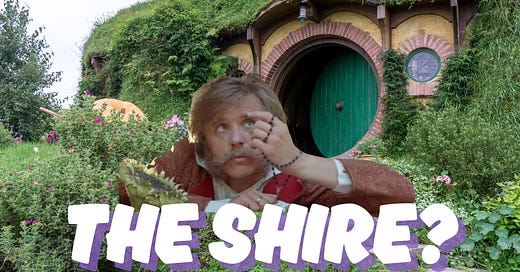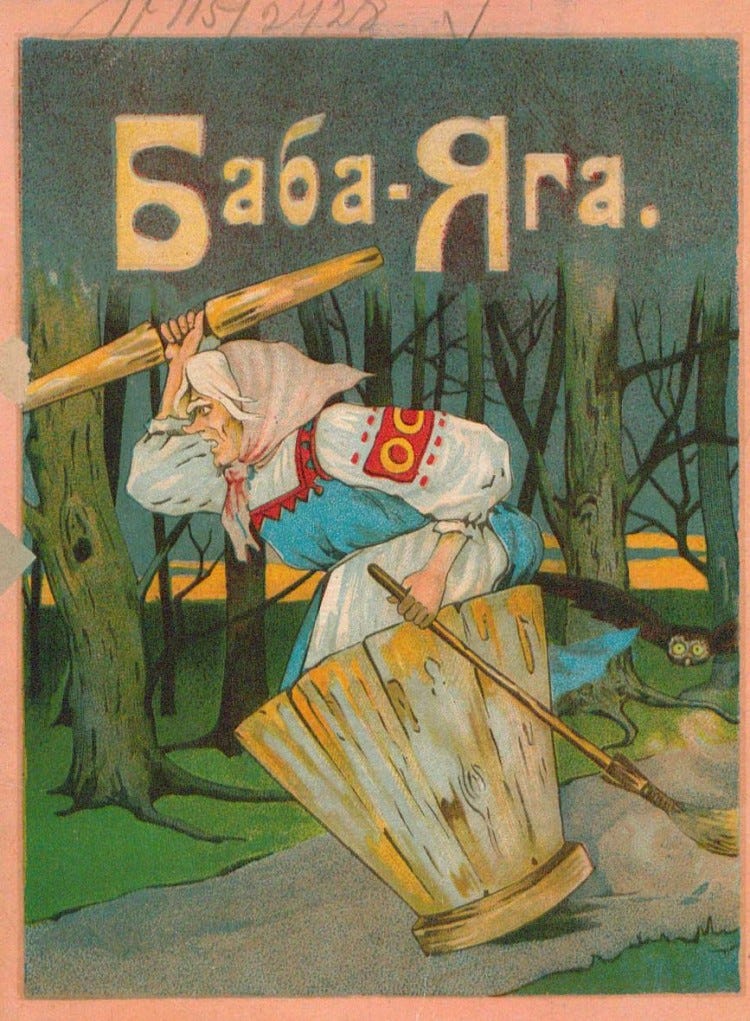I was a bit nervous about reviewing this chapter because I know how important it is for the novel. It was the first bit of the novel to be written and published, a whole ten years before the novel as a whole. Goncharov had quite clearly built his character in his mind early on and then fleshed him out from this chapter. It’s the genesis block.
There was nothing to disturb the sameness of this life and the Oblomov household did not feel it as at all tedious or cloying since they were simply incapable of imagining anything different—and even if they could have, they would have recoiled from it in horror.
<shudder>
It took me two days to read this chapter as I was taking lots of notes and it’s nearly fifty pages long. Parts of it made me think of different fantasy series that I’ve read and enjoyed through my life: Gormenghast for its adherence to ritual; The Chronicles of Thomas Covenant for the cloying beauty of Andelain; and the hobbits’ home in the Shire. The last one really seems particularly fitting, a place of idyllic village life, where nothing ever happens—just how the hobbits like it—and the seasons are marked by rituals. I wonder if Tolkien read this.
We also get some superstition and folklore in this chapter, with goblins (or wood-demons, depending on the translation) in the gully and even a mention of Baba Yaga, the famous Russian folktale of a witch in the woods.
I was in two minds about this world of Oblomvka: is it Heaven or is it Hell? I’m still in two minds. It feels like the kind of world that one can imagine coveting, but that is actually a place to go when one has given up trying. It’s natural that I would find my mind going to fantasy lands that I’ve read about, because Oblomovka reads very much like a fantasy land itself. The only glimpse we get of real life is in the last sentence, when Ilya Ilyich manages to escape briefly for a snowball fight and we get that wonderful ellipsis that finishes the chapter:
They kept him in bed for three days, but there was really only one thing that would have done him any good—to be out snowballing again…
The ellipsis leads us back out the dream and seems to insinuate that Ilya Ilyich never did manage to ‘go snowballing again’, or do anything else that would tear a hole in the marshmallow blanket of the dreamworld.
It’s an absolutely fascinating chapter and I wonder how much I would have enjoyed it had I read it before the chapters that preceded it. Maybe a Russian audience would have lapped it up but a western audience might not. I’d love to know if it was translated for the west before the novel itself. Anyone know?
Devious Means and Shortcuts
This bit stood out as being particularly relevant to the modern age, although perhaps it’s one of those universal things. It’s talking of what Ilya Ilyich’s parents want for their son:
While they wanted all these things for him they wanted to get them on the cheap. They wanted to get around the hurdles and obstacles on the path to education and success by whatever devious means and shortcuts they could, rather than take the trouble of surmounting them. Their idea was for Ilyusha to go through the motions of schooling without undue wear and tear on his mind or body and without any loss of the treasured puppy fat of his childhood, so that by satisfying the very minimum requirements he could somehow acquire the piece of paper that would certify that Ilyusha “had completed his studies in all subjects”.
You’ll read a different take on this when we get to the background chapter on Ilya Ilyich’s lifelong friend, Andrei Stolz. It’s fascinating. This paragraph makes me think of the malaise that we can all suffer from, wishing for results without doing doing the work, whether it be shortcuts to making a fortune through crypto or pyramid schemes, or productivity hacks to reach 100k subs in one year, all that grifter stuff we see online. The only potential winners there are the grifters themselves. Although in Ilya Ilyich’s case, it’s more a case of doing the bare minimum required, something that he manages to pull off at least as far as his schooling is concerned. Or how about diet pills? That kind of thing. Results without effort.
It’s fascinating!
Video Review
I recorded a detailed discussion of this chapter in my video review, including loads of quotes.
Questions
What’s your take on Oblomovka? Is it heaven or hell, or something in between?
Could you imagine having read this chapter first? Would it have made sense to you, or do you think we need to get to know Ilya Ilyich first before doing into his background?






What a chapter. At first it felt like I was reading another author and that it was nothing to do with Oblomov but of course we got into their life.
Was that how the wealthy lived at that time or is it just them? We now understand Oblomov - if this chapter came first, I not sure it would have worked. At this point though is there any hope for him? Guess we will see.
I like listening to your reviews, it helps more than just reading for my old brain.
I see a few parallels in this chapter to Ray Bradbury’s Dandelion Wine. The mysterious and forbidding gully in that story is called “the ravine.” There is also the same feeling of a need to keep everything always the same and to keep a protective bubble around the village because there is a shadowy something “out there” that threatens to come in and change things. And, of course, we don’t want that!